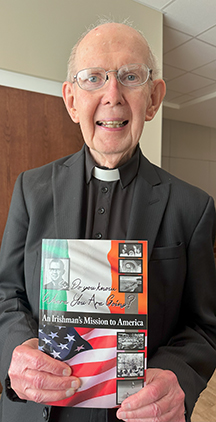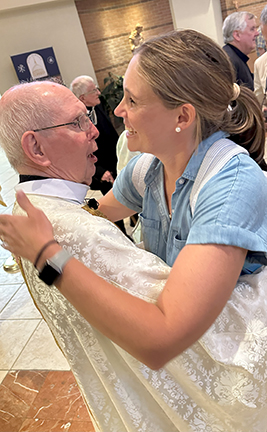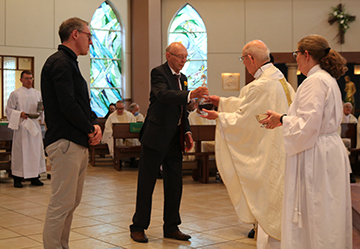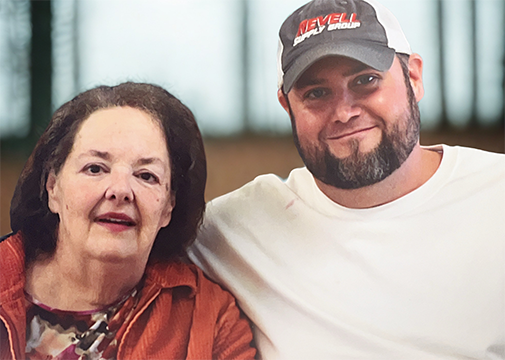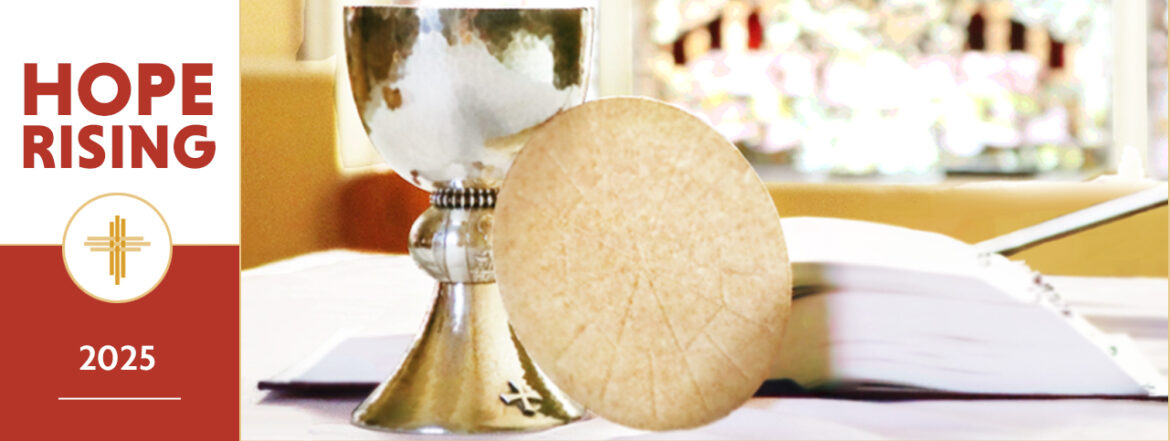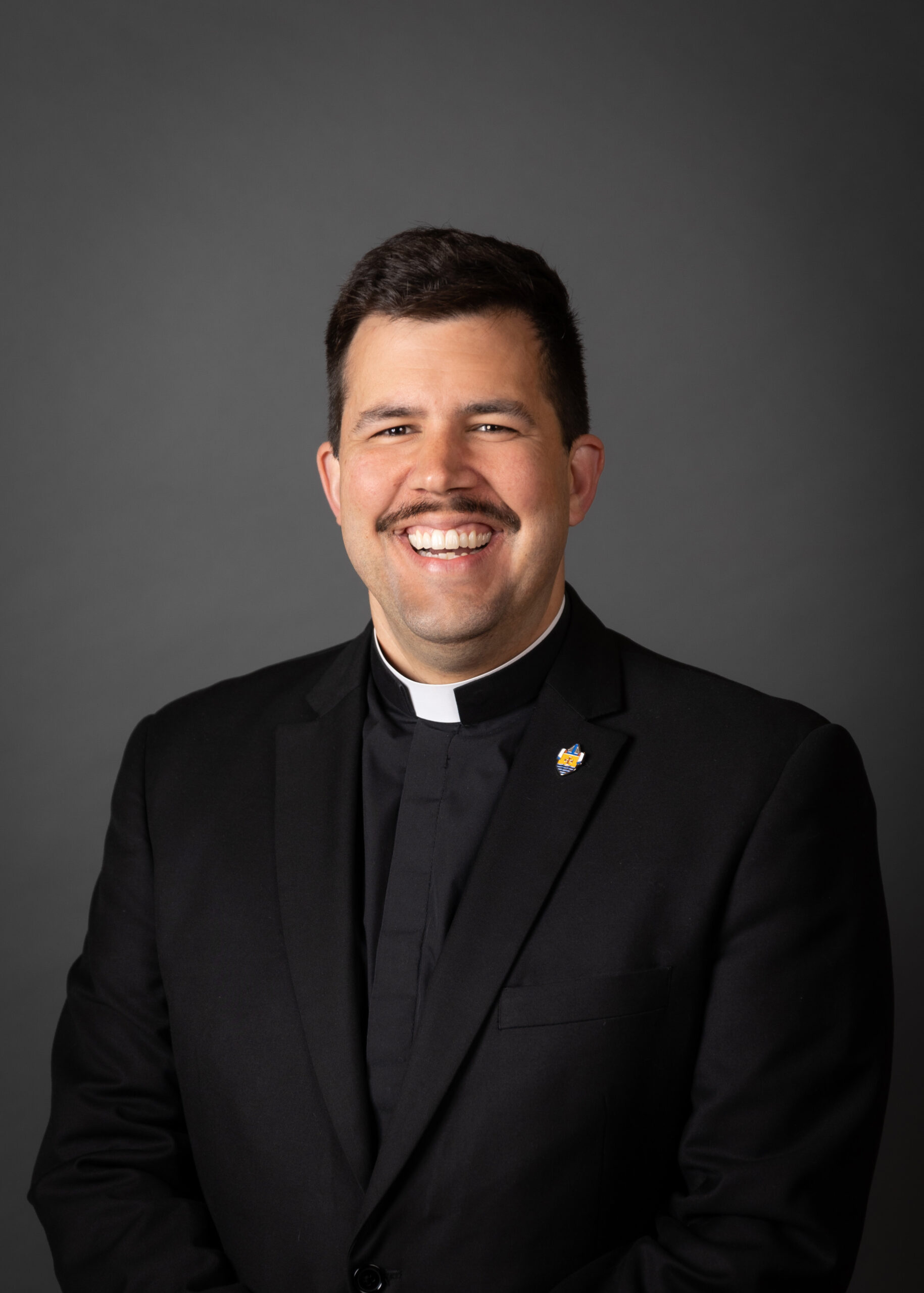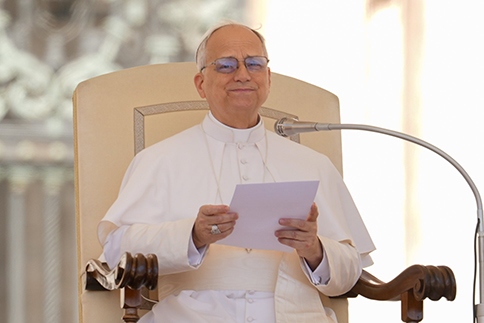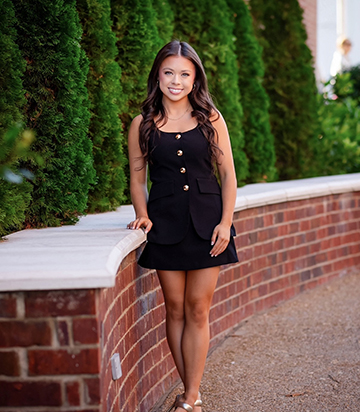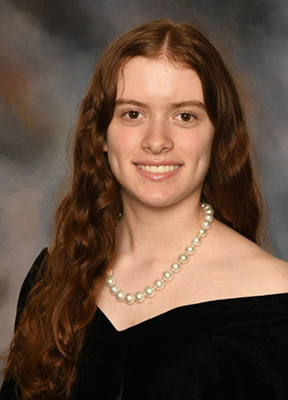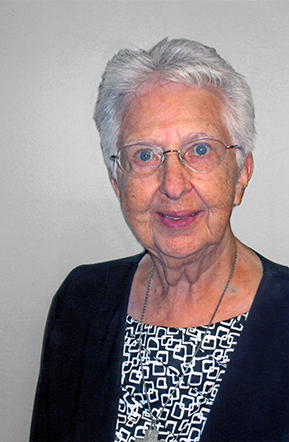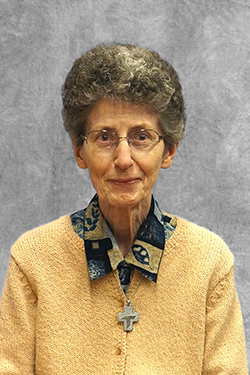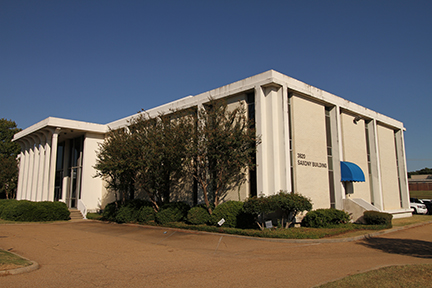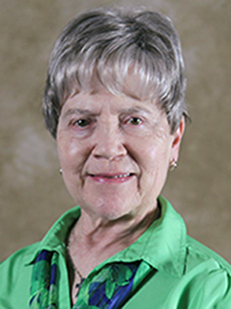By Joe Lee
MADISON – Ed Donohoe didn’t fly nearly as far as Father Frank Cosgrove’s family members from Ireland to see the beloved priest celebrate Mass and mark the 60th anniversary of his ordination, an event which took place June 2 at St. Francis of Assisi Church in Madison.
But 1,200 miles was a long way for Donohoe to travel, and not an inexpensive trip. Why was it so important for him to join the celebration across the country?
“Because Father Frank was like family,” said Donohoe, a Colorado resident who had just reported for duty at the Meridian Naval Air Station in 2008 when they met. Father Frank, then pastor of St. Patrick Church, would drive half an hour to the base chapel to celebrate Mass. It wasn’t long before he and Donohoe grew close.
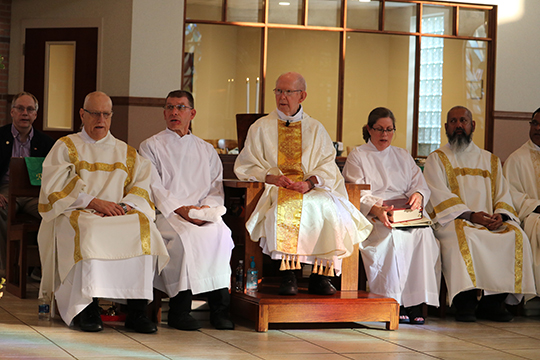
Cosgrove family members, including Father Frank’s brother Eamonn, his sister Ruth, and great nephews who were making their first trip to the U.S., flew over 4,000 miles to take part in the service and enjoy the reception. More than 50 priests from all over the Catholic Dioceses of Jackson and Biloxi came to support him, and Catholics from all over Mississippi (and a surprising number of non-Catholics) packed the St. Francis sanctuary.
They heard a homily that drew from his brand-new memoir, “Sir, Do You Know Where You Are Going?” and touched often on unity.
“The celebration means a great deal to me,” said Ralph Eubanks, who has known Father Frank since he was a student at Ole Miss two generations ago, back when Father Frank pastored at St. John Church. “He was devoted to the truth, he called out the sin of racism, and he believes in bringing people together.”
“He married my parents (Ed and Cindy Hannan) 48 years ago,” said St. Francis parishioner Anabeth Hannan Duncan. “He baptized me 31 years ago and married me three years ago. We have Christmas Eve with him every single year. When I think of God, I see Father Frank, imagining him a few feet taller.”
“Father Frank and I go back to 1969, when he was associate pastor at St. Peter,” said Charlene Bearden. “He made a way for me to have an audience with Pope St. John Paul II in 1987 when he was in New Orleans. This was through the National Black Catholic Leadership. He’s touched so many lives in so many ways.”
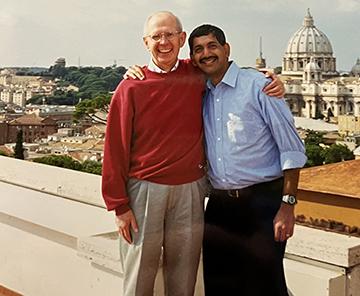
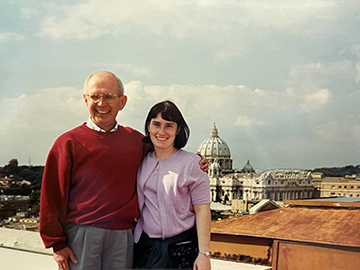
ROME – Father Frank Cosgrove, right, stands with now-Deacon Denzil Lobo on the rooftop of the Pontifical North American College in 2002. Lobo and his wife, Gina, surprised Cosgrove with a visit while he was on sabbatical in Rome. Both attended Cosgrove’s 60th ordination anniversary celebration where they reminisced about the special trip. (Photo courtesy Gina Lobo)
“I’ve known him since I was a teenager when he was our parish priest at Ole Miss,” said Mary Johnson Coyle. “I’ve stayed friends with him my entire adult life. You wanted to be a better Catholic around him. He’s a lovely, great man who brings everyone together.”
“My husband John and I were charter members at St. Francis,” said Mary Kraft. “Father Frank has been wonderful to our family. Our daughter and another little girl started CYO at St. Francis under him. He asked us to be eucharistic ministers, but I told him we would like to be altar servers, and we were the first adult altar servers.”
At the reception in the St. Francis family life center, Father Frank made time for everyone who wanted a hug, a selfie, or a minute or two to say thanks. The celebration lasted well into the night. Father Frank, now in his mid-eighties and slowed by Parkinson’s, was still on his feet with a big smile on his face.
The memoir was a huge hit, selling almost 200 copies at the event. It’s available for $20 while supplies last at parish offices at St. Patrick in Meridian, St. John in Oxford, St. Paul in Flowood, and St. Francis of Assisi in Madison.
Click here to view more photos
(Joe Lee is the Editor-in-Chief of Dogwood Press, and member of St. Francis of Assisi, Madison.)
